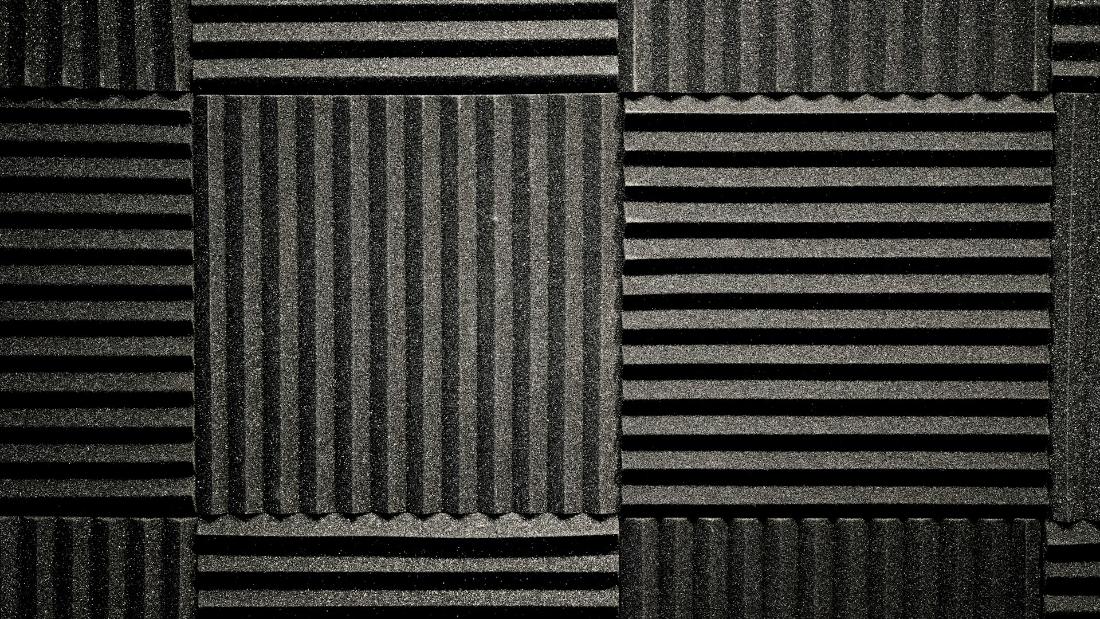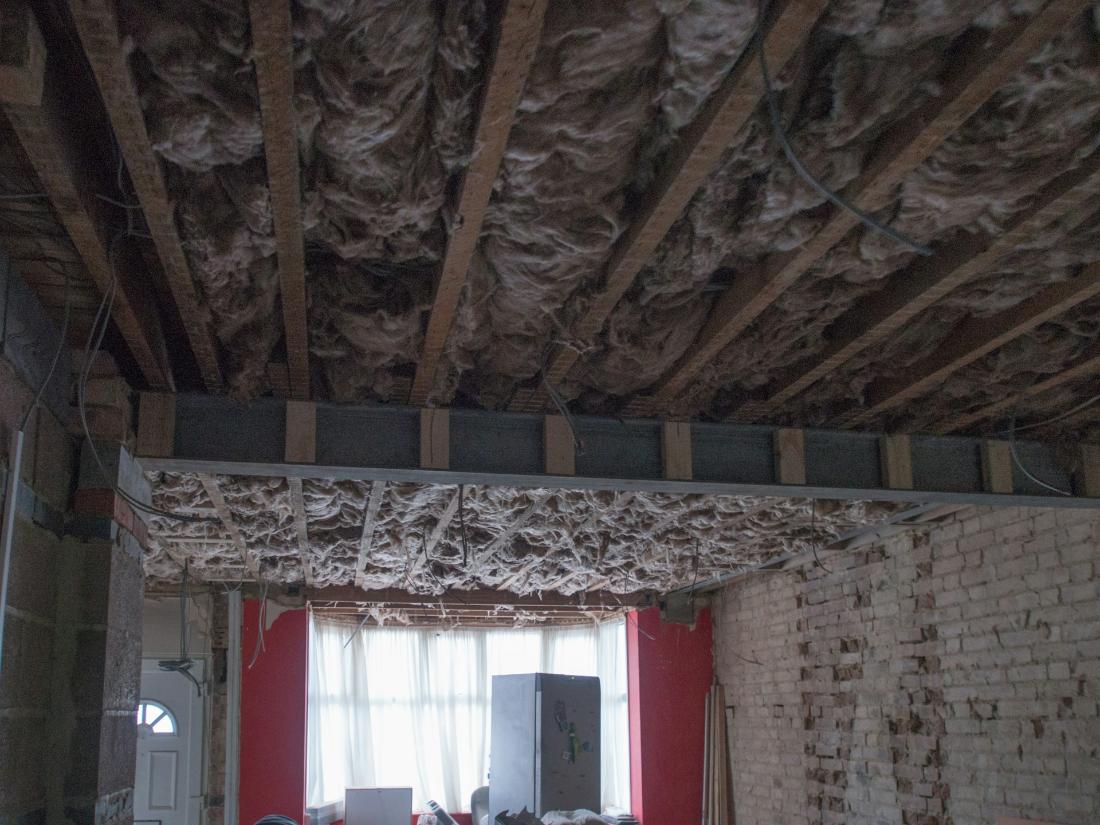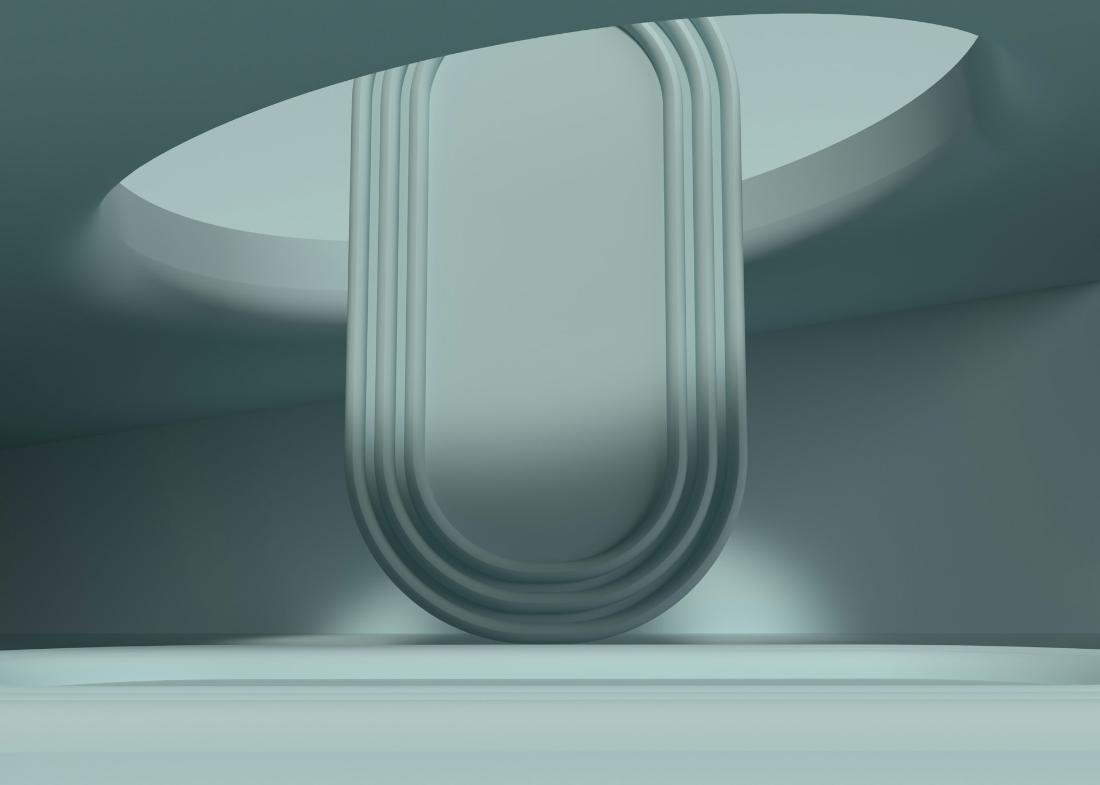Room
Sound Insulation Specialist in Malaysia: Creating Peace in a Noisy World
Aug 6 2025
The constant hum of traffic outside your bedroom window. The relentless pounding of construction machinery next door. The echoing chatter from neighboring offices. In Malaysia's rapidly developing urban landscape, noise pollution has become an inescapable part of daily life. I remember visiting a friend's new condominium in KL Sentral last year—despite its luxurious finishes, the relentless noise from nearby train operations made it feel more like living in a subway station than a home. That was before they consulted a sound insulation specialist in Malaysia who transformed their living space into a peaceful sanctuary.
Sound insulation is more than just a luxury—it's a necessity for maintaining quality of life, productivity, and even health. Studies have shown that chronic exposure to noise pollution can lead to increased stress levels, sleep disturbances, and reduced cognitive performance. In commercial settings, poor acoustics can affect employee concentration and customer experience. This article explores why professional sound insulation matters, the most effective solutions for Malaysian buildings, and how to identify a specialist who can deliver real results.
The Growing Need for Sound Insulation in Malaysia
Malaysia's urban centers are becoming increasingly noisy environments. The World Health Organization recommends indoor noise levels below 35 decibels for optimal sleep, yet many city dwellers regularly experience levels exceeding 60-70 decibels in their homes—comparable to constant vacuum cleaner operation. The problem extends beyond residential areas—open-plan offices, restaurants, and even hospitals struggle with noise issues that affect their core functions.
Traditional Malaysian construction methods often prioritize cost and speed over acoustic performance. Many modern high-rises use thin concrete slabs and lightweight materials that transmit sound easily. I've inspected numerous condominiums where residents can hear neighbors' conversations word-for-word through shared walls—a clear sign of inadequate sound insulation. The solution isn't simply adding mass; it requires understanding how sound travels through different materials and designing systems that interrupt its path effectively.
Sound insulation is more than just a luxury—it's a necessity for maintaining quality of life, productivity, and even health. Studies have shown that chronic exposure to noise pollution can lead to increased stress levels, sleep disturbances, and reduced cognitive performance. In commercial settings, poor acoustics can affect employee concentration and customer experience. This article explores why professional sound insulation matters, the most effective solutions for Malaysian buildings, and how to identify a specialist who can deliver real results.
The Growing Need for Sound Insulation in Malaysia
Malaysia's urban centers are becoming increasingly noisy environments. The World Health Organization recommends indoor noise levels below 35 decibels for optimal sleep, yet many city dwellers regularly experience levels exceeding 60-70 decibels in their homes—comparable to constant vacuum cleaner operation. The problem extends beyond residential areas—open-plan offices, restaurants, and even hospitals struggle with noise issues that affect their core functions.
Traditional Malaysian construction methods often prioritize cost and speed over acoustic performance. Many modern high-rises use thin concrete slabs and lightweight materials that transmit sound easily. I've inspected numerous condominiums where residents can hear neighbors' conversations word-for-word through shared walls—a clear sign of inadequate sound insulation. The solution isn't simply adding mass; it requires understanding how sound travels through different materials and designing systems that interrupt its path effectively.
Common Soundproofing Challenges in Malaysian Buildings
Every building presents unique acoustic challenges that require customized solutions. In my experience working with sound insulation specialists across Malaysia, several recurring issues stand out.
Flanking noise—the phenomenon where sound travels around or through structural elements rather than directly through walls—frustrates many property owners. A hotel client in Penang couldn't understand why soundproofing their party room walls didn't prevent noise from traveling through the ceiling void and into guest rooms above. Only a specialist with proper testing equipment could identify and address all the flanking paths.
Low-frequency noise from mechanical equipment like generators, elevators, and HVAC systems presents another complex challenge. These vibrations travel easily through building structures and require different treatment than airborne voices or music. A recording studio we worked with in Cyberjaya needed specialized resilient mounts and floating floor systems to isolate their space from nearby MRT vibrations.
Perhaps most surprisingly, many modern glass-fronted office towers suffer from poor acoustic privacy despite their premium appearance. The same large windows that provide stunning views also reflect and amplify interior noise, creating echo-filled environments where confidential conversations become public knowledge.
Effective Sound Insulation Solutions for Malaysian Properties
Professional sound insulation specialists employ various techniques tailored to different noise problems and building types.
Mass-loaded vinyl barriers have become a go-to solution for wall and ceiling applications in condominiums and terraced houses. When properly installed with airtight seals, these flexible sheets can improve sound insulation by up to 90% without significantly reducing room space. A client in Mont Kiara reported their bedroom went from clearly hearing elevator chimes to complete silence after installation.
Decoupling techniques, where walls or ceilings are built with separated studs or resilient channels, prevent sound vibrations from traveling through structures. This approach proved crucial for a medical center in Johor Bahru that needed to isolate sensitive consultation rooms from noisy waiting areas.
Acoustic insulation materials like rockwool or specialized foams absorb sound waves within wall cavities and floor voids. Unlike regular insulation, these products are engineered specifically for sound control with carefully tuned density and fiber composition. A music school in Damansara used these materials to create practice rooms where students could play loudly without disturbing adjacent classes.
For windows, laminated acoustic glass or secondary glazing systems can dramatically reduce street noise while maintaining views and natural light. A heritage shophouse owner in Malacca combined these with acoustic curtains to transform their bustling street-facing bedroom into a peaceful retreat.
Floor soundproofing deserves special mention in multi-story buildings. Impact noise from footsteps and dropped objects travels particularly well through concrete slabs. Floating floor systems with acoustic underlays or specialized rubber mats can solve this problem—something a luxury condo developer in Bangsar South wisely incorporated from the initial construction phase.
Every building presents unique acoustic challenges that require customized solutions. In my experience working with sound insulation specialists across Malaysia, several recurring issues stand out.
Flanking noise—the phenomenon where sound travels around or through structural elements rather than directly through walls—frustrates many property owners. A hotel client in Penang couldn't understand why soundproofing their party room walls didn't prevent noise from traveling through the ceiling void and into guest rooms above. Only a specialist with proper testing equipment could identify and address all the flanking paths.
Low-frequency noise from mechanical equipment like generators, elevators, and HVAC systems presents another complex challenge. These vibrations travel easily through building structures and require different treatment than airborne voices or music. A recording studio we worked with in Cyberjaya needed specialized resilient mounts and floating floor systems to isolate their space from nearby MRT vibrations.
Perhaps most surprisingly, many modern glass-fronted office towers suffer from poor acoustic privacy despite their premium appearance. The same large windows that provide stunning views also reflect and amplify interior noise, creating echo-filled environments where confidential conversations become public knowledge.
Effective Sound Insulation Solutions for Malaysian Properties
Professional sound insulation specialists employ various techniques tailored to different noise problems and building types.
Mass-loaded vinyl barriers have become a go-to solution for wall and ceiling applications in condominiums and terraced houses. When properly installed with airtight seals, these flexible sheets can improve sound insulation by up to 90% without significantly reducing room space. A client in Mont Kiara reported their bedroom went from clearly hearing elevator chimes to complete silence after installation.
Decoupling techniques, where walls or ceilings are built with separated studs or resilient channels, prevent sound vibrations from traveling through structures. This approach proved crucial for a medical center in Johor Bahru that needed to isolate sensitive consultation rooms from noisy waiting areas.
Acoustic insulation materials like rockwool or specialized foams absorb sound waves within wall cavities and floor voids. Unlike regular insulation, these products are engineered specifically for sound control with carefully tuned density and fiber composition. A music school in Damansara used these materials to create practice rooms where students could play loudly without disturbing adjacent classes.
For windows, laminated acoustic glass or secondary glazing systems can dramatically reduce street noise while maintaining views and natural light. A heritage shophouse owner in Malacca combined these with acoustic curtains to transform their bustling street-facing bedroom into a peaceful retreat.
Floor soundproofing deserves special mention in multi-story buildings. Impact noise from footsteps and dropped objects travels particularly well through concrete slabs. Floating floor systems with acoustic underlays or specialized rubber mats can solve this problem—something a luxury condo developer in Bangsar South wisely incorporated from the initial construction phase.
Choosing the Right Sound Insulation Specialist
With growing awareness of noise issues, many contractors now claim soundproofing expertise. However, true specialists possess specific qualifications and approaches that set them apart.
Proper acoustic measurement and analysis should always precede any soundproofing project. The best specialists use professional sound level meters and spectrum analyzers to identify exactly which frequencies need addressing. I've seen too many cases where generic solutions were applied to specific problems with disappointing results.
Material knowledge is equally crucial. An experienced specialist will understand which products perform best for different noise types—whether it's mass-loaded vinyl for airborne speech or resilient channels for impact noise. They'll also know which "miracle" soundproofing products marketed online actually work under real-world conditions.
Installation precision makes all the difference in soundproofing. Even small gaps or rigid connections can compromise an otherwise well-designed system. The top specialists obsess over details like sealant application, fastener placement, and edge treatments that ensure complete sound isolation.
Post-installation verification separates true professionals from amateurs. Quality specialists conduct follow-up testing to verify the achieved sound reduction and make any necessary adjustments. This scientific approach ensures clients get exactly what they paid for.
The Future of Sound Insulation in Malaysia
As urban density increases and noise regulations tighten, sound insulation technology continues advancing. Several exciting developments are emerging in the Malaysian market.
Smart soundproofing materials that adapt to different noise frequencies are being tested in high-end applications. These could revolutionize spaces like conference rooms that need variable acoustics.
Green soundproofing solutions using recycled materials appeal to environmentally conscious developers. Some new insulation products made from natural fibers perform nearly as well as synthetic ones while being completely sustainable.
Building information modeling (BIM) for acoustics allows specialists to predict and address sound issues during design rather than through costly retrofits. Progressive architectural firms are beginning to incorporate this from project inception.
Conclusion: Investing in Acoustic Comfort
In our increasingly noisy world, the ability to control one's sound environment has become a valuable commodity. Quality sound insulation improves sleep, enhances privacy, boosts productivity, and ultimately contributes to better quality of life.
When selecting a sound insulation specialist in Malaysia, look beyond flashy marketing to substantive expertise. The right professional will take time to understand your specific needs, propose customized solutions, and stand behind their work with proper testing and guarantees.
Whether you're a homeowner seeking peace, a business owner needing confidential spaces, or a developer wanting to add genuine value to your properties, professional sound insulation delivers benefits you can literally hear and feel. In a nation where urban noise keeps increasing, that's an investment worth making.
With growing awareness of noise issues, many contractors now claim soundproofing expertise. However, true specialists possess specific qualifications and approaches that set them apart.
Proper acoustic measurement and analysis should always precede any soundproofing project. The best specialists use professional sound level meters and spectrum analyzers to identify exactly which frequencies need addressing. I've seen too many cases where generic solutions were applied to specific problems with disappointing results.
Material knowledge is equally crucial. An experienced specialist will understand which products perform best for different noise types—whether it's mass-loaded vinyl for airborne speech or resilient channels for impact noise. They'll also know which "miracle" soundproofing products marketed online actually work under real-world conditions.
Installation precision makes all the difference in soundproofing. Even small gaps or rigid connections can compromise an otherwise well-designed system. The top specialists obsess over details like sealant application, fastener placement, and edge treatments that ensure complete sound isolation.
Post-installation verification separates true professionals from amateurs. Quality specialists conduct follow-up testing to verify the achieved sound reduction and make any necessary adjustments. This scientific approach ensures clients get exactly what they paid for.
The Future of Sound Insulation in Malaysia
As urban density increases and noise regulations tighten, sound insulation technology continues advancing. Several exciting developments are emerging in the Malaysian market.
Smart soundproofing materials that adapt to different noise frequencies are being tested in high-end applications. These could revolutionize spaces like conference rooms that need variable acoustics.
Green soundproofing solutions using recycled materials appeal to environmentally conscious developers. Some new insulation products made from natural fibers perform nearly as well as synthetic ones while being completely sustainable.
Building information modeling (BIM) for acoustics allows specialists to predict and address sound issues during design rather than through costly retrofits. Progressive architectural firms are beginning to incorporate this from project inception.
Conclusion: Investing in Acoustic Comfort
In our increasingly noisy world, the ability to control one's sound environment has become a valuable commodity. Quality sound insulation improves sleep, enhances privacy, boosts productivity, and ultimately contributes to better quality of life.
When selecting a sound insulation specialist in Malaysia, look beyond flashy marketing to substantive expertise. The right professional will take time to understand your specific needs, propose customized solutions, and stand behind their work with proper testing and guarantees.
Whether you're a homeowner seeking peace, a business owner needing confidential spaces, or a developer wanting to add genuine value to your properties, professional sound insulation delivers benefits you can literally hear and feel. In a nation where urban noise keeps increasing, that's an investment worth making.


